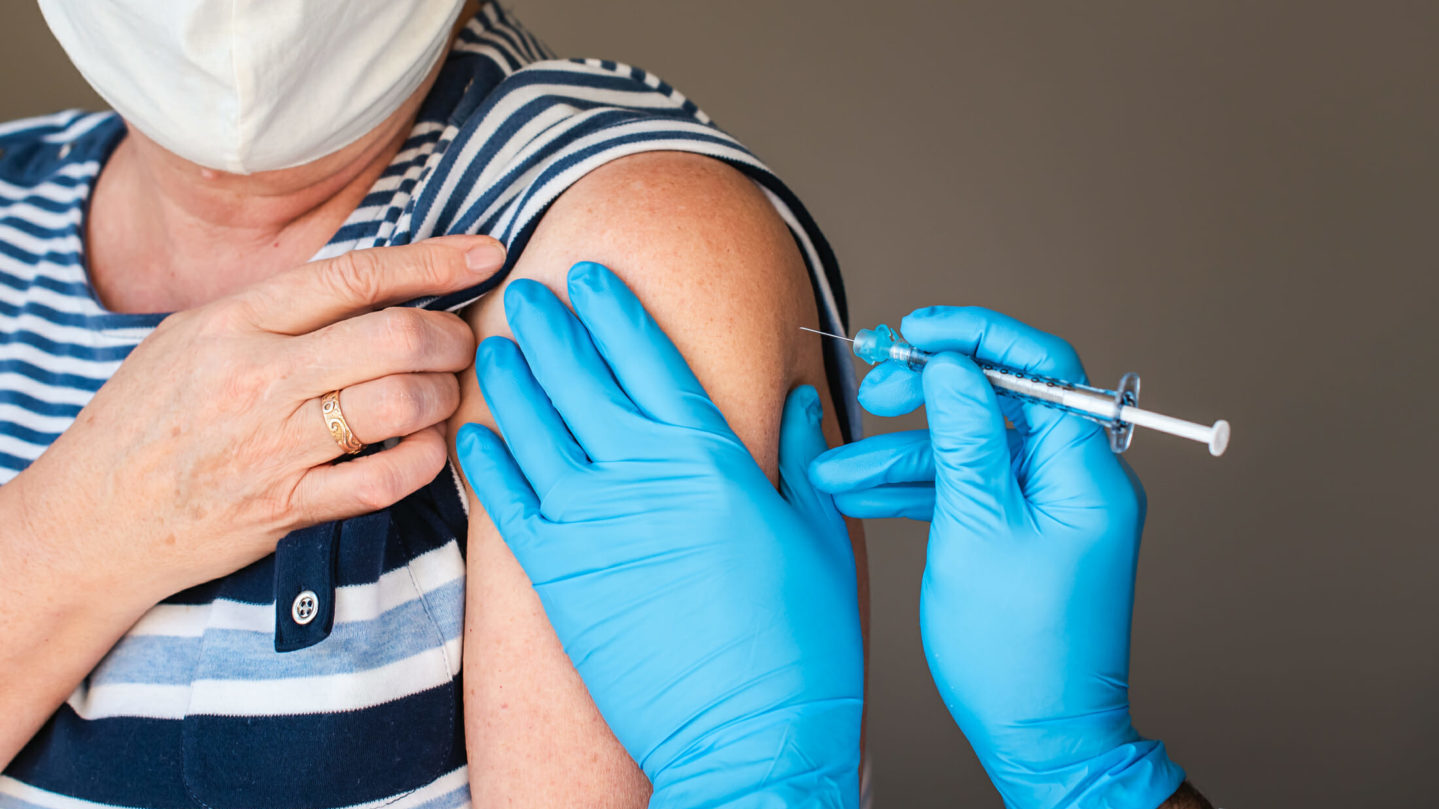
Clinicians who provide additional COVID-19 shots to fully vaccinated patients may be at risk for legal claims if they prescribe the doses outside of current federal guidelines, according to a senior health official with the Centers for Disease Control and Prevention.
Emergency use authorization has been extended to allow additional shots of the Pfizer-BioNTech and Moderna vaccines for people with moderately to severely compromised immune systems. But only about 3% of Americans fit that description, CDC has said, and fears that COVID-19 vaccine efficacy is waning has prompted some U.S. municipalities and health systems to take matters into their own hands and provide additional shots.
If something were to go wrong after a booster vaccine dose is administered, “providers may not have immunity from [legal] claims,” Demetre Daskalakis, M.D., CDC’s vaccine equity lead, said during a recent Advisory Committee for Immunization Practices committee meeting on booster shots, according to a report on the matter by National Public Radio. ACIP advises the Centers for Disease Control and Prevention.
CDC guidelines state that off-label COVID-19 vaccinations may not be granted liability protection under the Public Readiness and Emergency Preparedness Act. Off-label prescribing would also violate the COVID-19 vaccine agreement they signed with the CDC, and state supply to providers could be contingent on the provider’s toeing the line, the news outlet reported.
But the CDC’s threats may not hold up in court, wrote NPR’s Sydney Lupkin and Pien Huang.
“Off-label prescribing happens every single day” for other drugs, Ana Santos Rutschman, assistant professor at the Saint Louis University School of Law, told the news outlet. In fact, one in five prescriptions written today are for off-label use, according to the Agency for Healthcare Research and Quality.
But COVID-19 vaccines are a unique case when compared to other federally approved drugs on the market, according to a report by Bloomberg Law. They are not commercially available products because they are being distributed under an agreement with the federal government. And in Pfizer’s case, the shot is now available under a full approval and an emergency approval.
Many hospitals, meanwhile, have already begun vaccinating their workers with booster doses of the mRNA vaccines, one infectious disease expert and administrator told NPR. And the San Francisco Department of Public Health has announced it would offer additional doses to certain at-risk patients who have received the single-dose Johnson & Johnson vaccine, in consultation with their doctors. The city’s move prompted cautionary statements by the Centers for Disease Control and Prevention and the Food and Drug Administration, ABC 7 News has reported.
The Biden administration has secured at least 100 million vaccine doses as part of a strategy to provide additional COVID-19 shots to fully vaccinated priority groups by Sept. 20 — if an ongoing review of evidence shows that booster doses meet efficacy and safety guidelines, health officials have said. Nursing home residents and healthcare workers are among likely first recipients, according to reports.
In related news:
COVID booster vaccines may be limited to Pfizer shot only The White House’s planned rollout of a booster vaccine on Sept. 20 may be limited only to the Pfizer-BioNTech mRNA vaccine at the outset, according to Anthony Fauci, M.D., director of the National Institute of Allergy and Infectious Diseases. The data needed to greenlight a Moderna booster may be delayed for a matter of weeks, he said Sunday on Face the Nation.The reason for any delay is that “we’re not going to do anything unless it gets the appropriate regulatory approval,” he added. The CDC does not recommend mixing mRNA vaccine doses from the two manufacturers at this time.




